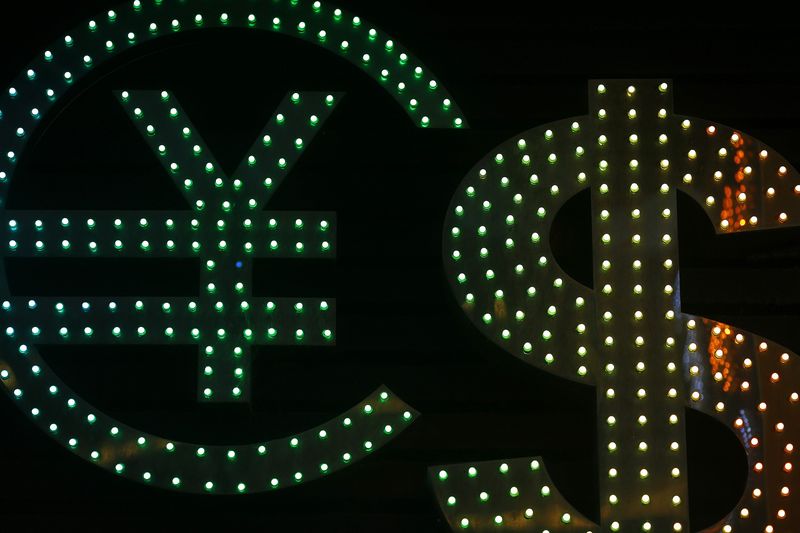* Euro rises back above $1.10
* Kiwi surges after RBNZ interest rate cut, statement
* Sterling hit by poor retail sales
* Signs of volatility in holiday-thinned markets
By Patrick Graham
LONDON, July 23 (Reuters) - The euro jumped above $1.10 for the first time in a week on Thursday, this week's steadier tone and the doubts it has raised about the dollar's rally leading some players to abandon short-term bets for more gains.
The New Zealand dollar was the biggest mover, jumping 1.5 percent after the country's central bank disappointed those who had bet on a larger cut in interest rates and toned down its call for more falls for the kiwi.
After a dive lower in morning trade in Europe, the dollar was half a percent lower against the euro EUR= , having briefly pushed above $1.10. Sterling also fell against the euro EURGBP= after a surprisingly poor batch of UK retail sales numbers. ID:nL5N10328L
The dollar has surged almost 5 percent since mid-June, but its momentum faded this week, casting doubt over how long a year-old rally for the U.S. currency has to run.
"There doesn't seem any fundamental reason behind the move this morning. It can happen in markets where banks are taking on less risk than in the past," said Ulrich Leuchtmann, a strategist with Commerzbank in Frankfurt.
"In general, we expect the euro to fall but only in a slow manner. We will see some gains for the dollar as the Fed raises rates. But it will not happen in a big, front-loaded way as we have seen in previous cycles; the moves will be slower."
Traders said there were option expiries at $1.10 and resistance at $1.1050 that would contain the euro's move.
"There is a bit of short-covering going on," said a London based trader.
LULL
Signs of a resolution of Greece's immediate financial problems have eased currency investors into a summer lull with eyes chiefly on a shifting landscape for global central banks.
The pound and the dollar have been driven higher by growing expectations the UK and United states will raise interest rates soon. Others are still cutting, and the trend for several other currencies is lower as a result.
But a number of factors have slowed those moves this week, ranging from simple market positioning to New Zealand's prime minister saying the currency had fallen more than expected to the poor sales numbers out of Britain on Thursday.
Dealers said the scale of "short" bets for further weakening helped drive the swift turnaround when the Reserve Bank of New Zealand cut by only a quarter point on Thursday and removed references to the dollar's level being "unjustified" or "unsustainable" while still calling for more weakness.
"Everyone was short, and it only took a couple of hints in the statement that they are not quite as gung ho as some people might have imagined to provoke this move," said a dealer with one international bank in London.
By 1234 GMT, the kiwi had risen to $0.6686 NZD=D4 , up 1.6 percent on the day and almost two full cents above a six-year low of $0.6498 hit on July 14.
The dollar was also down 0.2 percent against the yen at 123.76 yen JPY= , holding just above a one-week low of 123.57 yen touched in the previous session.
The dollar index, which tracks the greenback against a basket of major currencies, stood at 96.979 .DXY , down about 0.5 percent on the day to its lowest in just over a week.
"We are in line with the consensus in being pretty positive on the dollar," said Chris Chapman, global bonds fund manager with Manulife Asset Management. "So our positions that are not dollar-denominated we have looked to hedge. We think the dollar will strengthen over time." (Editing by Mark Heinrich)
